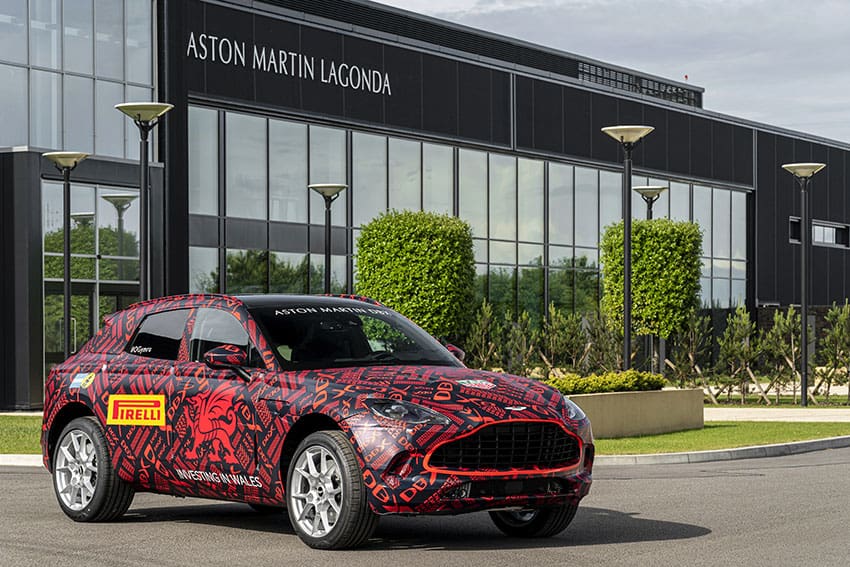Aston Martin has warned of a sharp fall in annual profits as “challenging trading conditions” extended into the key month of December – sending shares plunging.
Chief executive Dr Andrew Palmer said it had suffered a “very disappointing year” despite core retail sales growth of 12%.
That was after wholesale volumes – cars sold via other dealers – fell 7%, hit by a poor performance in continental Europe, while the overall mix of sales favoured the company’s less expensive brands.
The company also spent more money on marketing and helping customers finance purchases.
“The challenging trading conditions highlighted in November continued through the peak delivery period of December resulting in lower sales, higher selling costs and lower margins,” it said.
The performance contrasted with that of rival Rolls-Royce, which said it had enjoyed record annual sales.
Aston Martin said it was continuing to review its funding options and remained in discussion with potential investors which “may or may not involve an equity investment in the company”.
It is also reviewing its plans for 2020 and would provide an update “in due course”.
The carmaker, whose shares have fallen by more than two-thirds since it floated on the London stock market in October 2018, will publish full-year results next month.
It said it now expects to report underlying earnings of between £130m and £140m, well below the market expectation of £196m and down from £247m a year earlier.
Dr Palmer said: “From a trading perspective, 2019 has been a very disappointing year.
“Whilst retails have grown by 12%, our best result since 2007, our underlying performance will fail to deliver the profits we planned.
“We are taking a series of actions to manage the business through this difficult period.”
The global car industry has suffered a turbulent year, with demand squeezed partly due to the US-China trade war as well as tougher regulation on diesel vehicle sales.
But bucking the trend was British rival Rolls-Royce, which said it sold a record 5,152 vehicles last year, up 25% on 2018.
Sussex-based Rolls-Royce, owned by Germany’s BMW, said the growth was driven by demand for its new SUV brand Cullinan.
Rolls-Royce did not set out the value of its annual sales, but said its performance – which saw it deliver vehicles to more than 50 countries around the world – was “unequalled in the company’s 116-year history”.
It said sales grew across all global regions, with North America remaining its biggest market, followed by China and Europe, including the UK.
Chief executive Torsten Müller-Ötvös said: “This performance is of an altogether different magnitude to any previous year’s sales success.”
Meanwhile Bentley – the British luxury car brand owned by Germany’s Volkswagen – said it returned to profitability last year, helped by a 5% sales increase.


